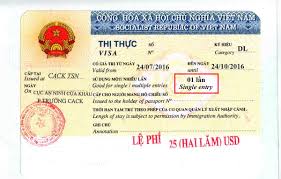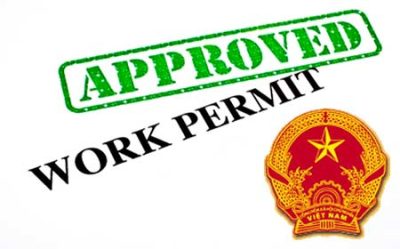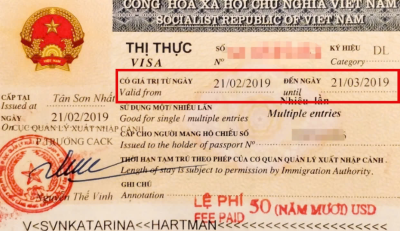With its breathtaking landscapes, vibrant cities, and rich cultural heritage, Vietnam welcomes travelers from around the world. Navigating the visa process, however, can be a bit complex. Vietnam Visa Express will break down the differences between the Vietnam Tourist Visa and the Vietnam Visitor Visa, guiding you to the right choice for your travel plans.
Overview of Vietnam Tourist Visa and Vietnam Visitor Visa
Vietnam offers various visa options for travelers with different purposes, and understanding the distinctions is essential to ensure a smooth entry into the country. Both the Vietnam Tourist Visa and Vietnam Visitor Visa allow foreign nationals to visit; however, they serve slightly different purposes and have distinct eligibility criteria.
Understanding the Vietnam Tourist Visa
The Vietnam Tourist Visa is intended primarily for individuals looking to explore Vietnam’s sights, immerse themselves in its culture, or engage in short-term leisure activities. Typically granted for single or multiple entries, the tourist visa is favored by travelers interested in visiting for brief stays without engaging in employment or long-term residence.
What is the Vietnam Visitor Visa?
On the other hand, the Vietnam Visitor Visa is generally issued to those visiting family members, friends, or relatives residing in Vietnam. This visa type may also apply to individuals invited by Vietnamese citizens or residents for specific non-tourism purposes, such as attending private events or visiting for personal reasons. The Visitor Visa serves as a bridge for those with familial ties or other personal connections within the country.
Key differences between Tourist Visa and Visitor Visa
Differences in purpose of visit
– Tourist Visa: Geared towards tourism, recreation, and short-term sightseeing activities. This visa is ideal for those planning to visit Vietnam purely for leisure, exploring destinations such as Ha Long Bay, Hanoi’s Old Quarter, or the Mekong Delta.
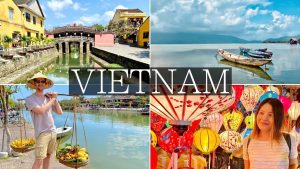
Tourist Visa is suitable for people who want to visit Vietnam tourist attractions
– Visitor Visa: Specifically intended for visiting family or friends within the country. This visa may also be used for attending family events, private gatherings, or any personal purpose related to the applicant’s connections in Vietnam.

People who want to visit family, friends should apply for a Visitor Visa
Duration of stay and validity
The Tourist Visa is commonly issued for a shorter period compared to the Visitor Visa, although both may vary depending on individual applications.
– Tourist Visa: Often valid for up to 30 days, with options for single or multiple entries. Some applicants may be eligible for extensions or longer durations, but these are usually more limited for tourist purposes.
– Visitor Visa: Typically offers more extended stay options, depending on the nature of the applicant’s connection to Vietnam. Visitor Visas might be granted for up to 90 days, providing greater flexibility for extended family visits.
Application process for Vietnam Tourist Visa vs. Visitor Visa
Application requirements for a Tourist Visa
To apply for a Tourist Visa, applicants generally need to submit the following:

You need to prepare visa application form, passport, passport photos, fee and other documents when applying for a Vietnam Tourist Visa
1. Completed visa application form: Available on the Vietnam Immigration Department’s official website or through consulates.
2. Passport: Valid for at least six months from the date of entry.
3. Passport photos: Usually two recent color photos with specific dimensions.
4. Visa fee payment: Fees vary depending on the visa type and nationality.
5. Supporting documents: In some cases, additional documents such as travel itineraries or hotel bookings may be required to support the application.
Applications for a Tourist Visa can be submitted online, at a Vietnamese embassy, or through authorized travel agents.
Applying for a Vietnam Visitor Visa
The Visitor Visa application process is similar to the Tourist Visa but may require additional documentation to confirm the visitor’s connection to Vietnam. Key requirements typically include:
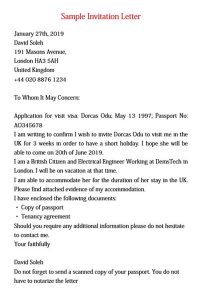
Invitation letter from a Vietnamese citizen is required when applying for a Vietnam Visitor Visa
1. Invitation letter from a Vietnamese citizen or resident: This letter should specify the relationship and purpose of the visit.
2. Proof of relationship: Such as marriage certificates, birth certificates, or other official documents, if applicable.
3. Completed application form and passport: Similar to the Tourist Visa, a valid passport and filled-out application form are required.
4. Additional documents: Depending on the case, additional documents such as event invitations, schedules, or any supporting documents related to the visit’s purpose may be necessary.
Applicants can apply for the Visitor Visa through Vietnamese embassies, consulates, or by coordinating with their contacts in Vietnam who can assist in obtaining the invitation letter.
Cost comparison
– Tourist Visa fees: The cost of a Tourist Visa typically ranges from $25 for single-entry visas to around $50 or more for multiple-entry options. These fees may also differ based on where the application is made (Vietnam E-visa or Vietnam visa at a consulate).
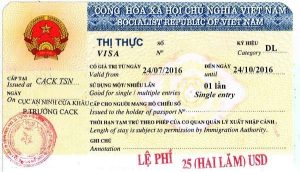
It costs $25 to apply for a Vietnam Tourist Visa (single entry)
– Visitor Visa fees: The Visitor Visa may be slightly higher than the Tourist Visa, especially if additional documents or processing is required. Visitor Visa fees may vary between $40 to $70 depending on factors such as the intended stay duration.
Choosing between a Vietnam Tourist Visa and a Visitor Visa
Which visa is right for your visit to Vietnam?
– Opt for the Vietnam Tourist Visa if your trip focuses solely on tourism, sightseeing, and recreation. This visa is designed for individuals wanting to explore Vietnam without familial obligations or personal events.
– Choose the Vietnam Visitor Visa if you have a personal connection in Vietnam, such as family or friends, and you plan to stay for an extended period. The Visitor Visa provides more flexibility for personal engagements and family visits.
Common mistakes to avoid when choosing a visa type
1. Not matching visa purpose with travel intent: Ensure your purpose aligns with the visa type. For example, avoid applying for a Tourist Visa if your primary purpose is visiting family.
2. Ignoring validity and entry restrictions: Check the visa’s expiration and entry limits to avoid overstay penalties or re-entry issues.
3. Overlooking required documentation: Failing to submit necessary documents, especially for the Visitor Visa, can delay the process and lead to application rejections.
In conclusion, Tourist Visa and Visitor Visa are different from each other. If you find it too complicated to complete the application process by yourself, you should contact to a reputable agency like Vietnam Visa Express. All you need to do is giving them your personal information and do not need to care anything else. You can better plan your visit, meet all requirements, and ensure a smooth entry!

